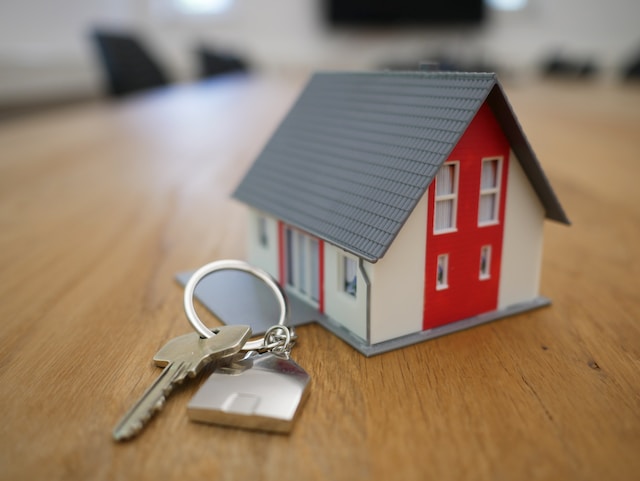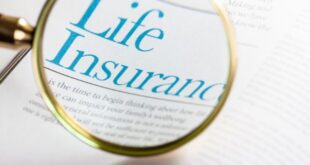Being a homeowner is one of the most rewarding experiences in life, but it comes with an array of responsibilities and tasks that need to be handled correctly. One of those things is making sure you have adequate insurance coverage for your home and belongings. It may seem intimidating at first, but understanding the basics of homeowners insurance will help make the process much easier.
In this blog post, we’ll cover important information every future homeowner should know about getting insurance and how to ensure they choose the best plan for their needs. Dive in and let’s start taking control of your financial future!
Understand the Different Types of Home Insurance Coverage
As a homeowner, protecting your investment with insurance is essential. However, navigating through the various types of home insurance coverage can be overwhelming. When considering homeowner insurance options, it is crucial to understand the different types of coverage available to you. For instance, standard home insurance policies generally cover damage caused by fire, windstorms, hail, and theft, but may not cover floods or earthquakes.
Additionally, there are different coverage levels available, including basic, broad, and comprehensive coverage. By understanding the different types of coverage, homeowners can make an informed decision when selecting a policy that best fits their needs and preferences.
Learn about Common Exclusions to Consider
As you start exploring your insurance options, it’s important to understand that not everything may be covered. While insurance can provide great peace of mind, it’s essential to also be aware of any exclusions that may apply to your policy. For example, your policy may not cover damages caused by a specific natural disaster, like flooding, due to the increased risk associated with such events. Therefore, it’s advisable to consider additional coverage specifically designed to protect against these types of risks.
Moreover, when it comes to insuring valuable items like jewelry or art collections, it’s worth noting that your standard policy may not provide sufficient coverage. To ensure adequate protection, you may need to consider adding specific endorsements or riders to your policy that offer additional coverage for these high-value items. This way, you can have peace of mind knowing that your prized possessions are adequately protected in the event of loss or damage.
By understanding these exclusions and taking necessary precautions, homeowners can make informed decisions and make any adjustments to their policies that align with their specific needs. This proactive approach can help avoid potentially costly surprises in the future and provide comprehensive coverage for a wide range of risks and circumstances.
Know What You’re Covered for in the Event of a Disaster
Disasters can strike unexpectedly and leave you in a vulnerable position. As such, it’s vital to know what your insurance policy covers in the event of a catastrophe. For instance, do you have coverage for natural disasters such as hurricanes, earthquakes, or floods? What about man-made disasters caused by fires or explosions?
Knowing what your insurance policy covers can make all the difference in starting the rebuilding process sooner, rather than later. Not to mention, it can give you peace of mind in knowing you’re protected when you need it most. Don’t wait until it’s too late. Review your policy today and ensure you’re covered for whatever comes your way.
Don’t Forget to Check Your Insurance Policy for Discounts and Offers
Insurance policies can often be complex, difficult to understand, and unfortunately, expensive. However, it’s important to know that insurance providers offer various discounts and special offers to help lower your premium costs. For instance, some insurance companies provide discounts for installing safety features like smoke detectors or security systems in your home. This not only enhances your safety but also reduces the risk of potential claims.
Additionally, many providers offer discounts for bundling multiple policies, such as auto and homeowner’s insurance, with the same company. By consolidating your policies, you can save both time and money. It’s always worthwhile to review your policy carefully and explore any potential opportunities to save money while ensuring you have the coverage you need.
Create an Emergency Fund for Unforeseen Expenses
Emergencies can happen at any time, whether it’s a sudden medical expense, a car breakdown, or unexpected home repairs. Having an emergency fund is like having a financial safety net that can provide peace of mind and protect you from financial stress. It acts as a buffer against unexpected expenses or damages that may not be covered by insurance.
With an emergency fund in place, you can confidently handle these unforeseen circumstances without worrying about the immediate impact on your finances. It allows you to cover these unexpected costs without having to rely on credit cards or loans, which can lead to long-term debt and financial strain.
As a future homeowner, it becomes even more crucial to start building your emergency fund as early as possible. Homeownership comes with its own set of responsibilities and potential expenses, such as repairs, maintenance, and property taxes. By proactively saving for emergencies, you can ensure that you’re prepared for any situation that may arise, giving you peace of mind and financial stability.
Start small but consistently contribute to your emergency fund, and over time, it will grow into a robust safety net that can provide the necessary financial cushion whenever you need it.

Protecting your home is essential for all types of homeowners. Understanding the different types of home insurance coverage and being aware of common exclusions and discounts will help you have peace of mind that whatever might happen to your home you can find a solution that is tailored to your needs. Furthermore, if you are living in areas prone to natural disasters consider getting additional coverage for prior preparation. Finally, it might be wise to plan ahead and create an emergency fund for any unforeseen expenses not covered by your policy so you’ll be prepared when disaster strikes. If you’re looking for more advice on how best to assess and purchase home insurance, be sure to talk to a professional. That way, you can make sure that your property is safe and sound for many years to come!
 khamush.com Lifestyle | Motivation | Poems
khamush.com Lifestyle | Motivation | Poems



